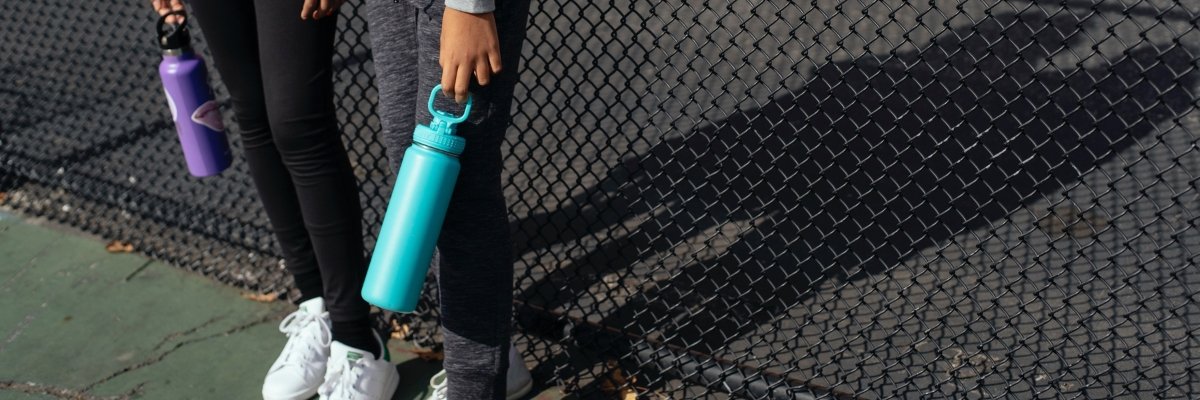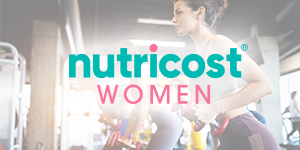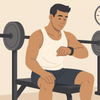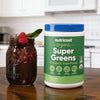Water vs. Electrolytes: Which Is More Important?

If you’re dehydrated, what do you do?
If you answered, “Drink water” then—SURPRISE—you get a 50% on your report card.
The truth is that hydration is about much more than just drinking water whenever you’re thirsty. First, being thirsty means you’re already dehydrated. Second, (and not many people understand this) hydration requires electrolytes.
Electrolytes are not a bonus. They aren’t extra, and they certainly aren’t optional. You can drink all the water you want, but if you’re not getting your electrolytes, you’re going to suffer from improper hydration.
Why Is Hydration Important?
Your body is roughly 60-70% water. When you are properly hydrated, your body enjoys a kind of balance.
Think of it this way. When you first blow up a balloon, it’s firm and strong. However, as air leaks out, it becomes wrinkled and sad. When we exercise, we sweat, losing fluids and electrolytes. Our cells shrivel up (like old balloons). This is usually the point when we start to feel thirsty.

We shouldn’t drink water to fix dehydration. We should drink water to prevent dehydration.
Studies have shown that dehydration affects not only endurance but also performance and strength. Fluid/electrolyte imbalance leaves us impaired. This is why it’s important to be constantly hydrating, especially if you live an active lifestyle (which you should!)
What Are Electrolytes?
Electrolytes are essential minerals. These minerals carry an electrical charge, either positive or negative (like the ends of a battery).
Your body is a machine. It runs on electrical signals which travel from your brain to your muscles, telling them to move. Electrolytes are crucial to keeping your nervous system and muscles functioning.
Consider these two electrolytes: Magnesium and calcium. Calcium controls muscle contraction. Whenever you clench or fist or flex your bicep, these actions are caused by calcium flowing into your muscle cells. Magnesium flow, on the other hand, allows your muscles to relax again.
Oh, and one more thing: One muscle in your body depends on this
same calcium/magnesium process more than 100,000 times a day. It’s your heart.
Electrolytes. They’re a big deal.
Can’t I Get Electrolytes From Sports Drinks?
Sweat is salty. This is because it’s full of sodium, chloride, and potassium. All three of these minerals are electrolytes which must be replenished in order to maintain electrolyte balance in your body.

Sports drinks market themselves as a solution, but many contain high amounts of unhealthy, added sugars. Electrolyte profiles in sports drinks are often limited to only a few of the minerals essential for proper hydration and muscle function (mainly sodium).
One researcher described popular sports drinks as a “compromise”, and they’re right. Most sports drinks are formulated to be a delicious beverage first and a hydration/performance drink second.
However with Nutricost Electrolytes you won't have to compromise between function, and taste. We include 16 vitamins and minerals in our hydration powder so that you hydrate faster, and you don't have to worry about remembering the different electrolytes when checking the ingredients like you would with sport drinks. Plus we have 6 new formulated flavors so there is something to appease every taste bud like Watermelon Lime, Orange Mango, and POG. We even put them in new convenient hydration packets so that no matter where you go, hydration is only a bottle away!
If you’re losing a lot of sweat to exercise, we recommend an electrolyte complex instead. Electrolyte complexes contain high amounts of a wide variety of important electrolytes and other nutrients to keep you healthy and hydrated, even after strenuous exercise.
List Of Electrolytes
Here’s a list of common electrolytes to look for the next time you’re looking at labels:
- Sodium
- Potassium
- Chloride
- Calcium
- Magnesium
- Phosphate
Wrapping Up
Diet and exercise are essential to health, but too many people forget that “diet” doesn’t just mean “eating”. If we’re not replenishing the fluids and electrolytes that we lose, we’re impairing ourselves, and we won’t be able to perform to the best of our ability.
Sources
https://pubmed.ncbi.nlm.nih.gov/22150427/
https://www.ncbi.nlm.nih.gov/pmc/articles/PMC6213308/-
Posted in
General Health










